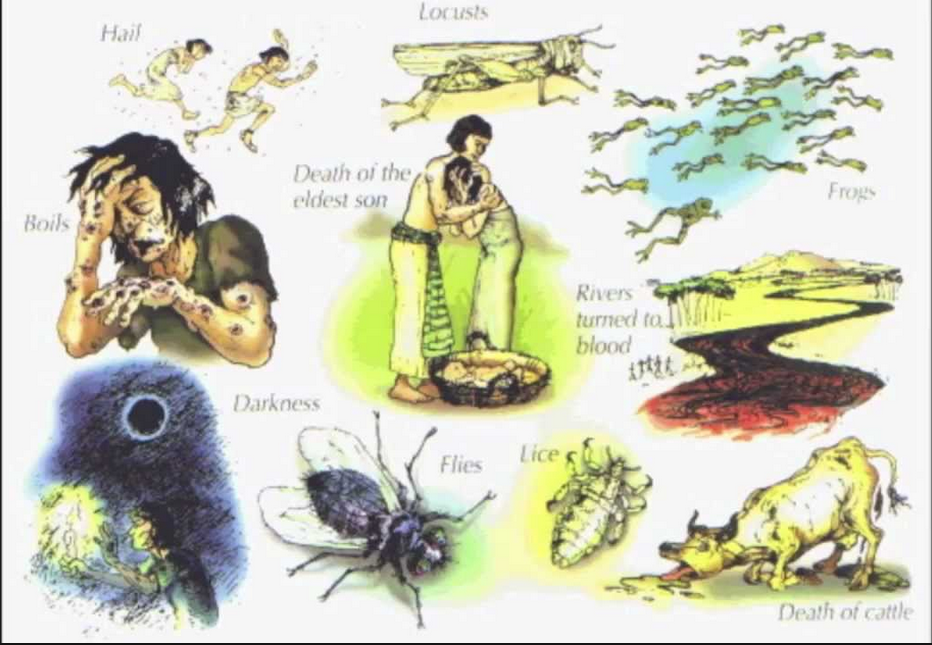Natural disasters, like droughts and pandemics, are commonplace in Africa. As I write this, for example, drought is decimating East and Southern Africa while a new Ebola outbreak is raging across the Democratic Republic of Congo and threatening to spread beyond.
Hell, you’d be forgiven for thinking that God is continually unleashing plagues to get one African leader or another to do the right thing. This, of course, dates back to the Ten Plagues he unleashed upon Egypt to get Pharaoh to free the Israelites from bondage.
Unfortunately, since decolonization, African leaders have shown so little fear of the wrath of God, they make Pharaoh look like one of the meek just waiting (in vain) to inherit the earth. Only this explains why their man-made disasters, like tribal warfare and kleptocratic governance, make natural disasters look relatively harmless.
 Given this, it seemed like a godsend seven years ago when a decades-old civil war in Sudan led to the creation of a new nation, South Sudan, because this presented a proverbial tabula rasa upon which its leaders could build. More to the point, South Sudan could reap the benefit of lessons learned from all the wrongs that have beset the development of every other African nation.
Given this, it seemed like a godsend seven years ago when a decades-old civil war in Sudan led to the creation of a new nation, South Sudan, because this presented a proverbial tabula rasa upon which its leaders could build. More to the point, South Sudan could reap the benefit of lessons learned from all the wrongs that have beset the development of every other African nation.
Sadly, it seems Africans will never learn. Because, just seven years later, it is self-evident that South Sudan is reaping nothing but a bitter harvest. It is already indistinguishable from Africa’s most beleaguered nations, looking as it does like just another dark, destitute, diseased, devastated, disenfranchised, dishonest, disorganized, disassociated, dangerous, and ultimately dysfunctional mess.
This year’s harvest was the smallest on record since South Sudan gained independence from Sudan in 2011, with the country producing only a fraction of its needs, according to the World Food Program.
On top of that, peace talks have stalled and cease-fires have largely been ignored, which means the fighting has cut off some areas from emergency help. Aid workers have been targeted by government and rebel fighters alike, making food distribution increasingly difficult.
(The New York Times, May 30, 2018)
In fact, tribal warfare erupted in South Sudan almost from day one its independence. Now it’s creating yet another refugee crisis. And this one is making the crisis sectarian warfare in Syria created look like a well-organized protest march. To date, two million people have fled South Sudan and another two million remain internally displaced.
And so it goes – from famine to war and all disasters in between – this new nation is aping all that went (and is still going) wrong with the other 53 nations in Africa.
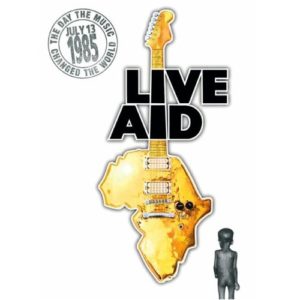 But I’ve already bemoaned South Sudan’s woeful fate too much. As it happens, the civil strife and looming famine the Times is reporting on today I presaged three years ago in “Millions in South Sudan Eating Leaves and Grass … Like Cows,” October 29, 2015.
But I’ve already bemoaned South Sudan’s woeful fate too much. As it happens, the civil strife and looming famine the Times is reporting on today I presaged three years ago in “Millions in South Sudan Eating Leaves and Grass … Like Cows,” October 29, 2015.
In it, I delineated my dismay at the sight of South Sudan presenting the same kind of humanitarian challenge Ethiopia presented nearly 35 years ago. Compounding this dismay, South Sudan seemed as dependent on the international community providing (live) aid to avert mass starvation as Ethiopia was back then.
But, instead of venting dismay anew, I shall suffice to reprise (most of) that previous commentary. I suspect you’ll find it both informative and prophetic. This, especially regarding the warmongering and incompetent despots who – with all due respect to Mother Nature – are mostly to blame for these cycles of famine on the “dark continent.” And yes, I shall continue using that now-politically incorrect term because it fairly describes the myriad ways African nations have descended into the “heart of darkness” since decolonization.
Without further ado, here is “Millions in South Sudan Eating Leaves and Grass … Like Cows,” October 29, 2015.
*********
For important context on this grazing tragedy, here is an excerpt from “South Sudan Descending into the Heart of Darkness,” December 30, 2013.
_________________
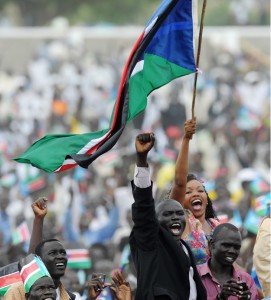 I joined the chorus of those heralding the birth of South Sudan as a new nation in Africa – fathered not by colonial masters but by Africans themselves. But I felt constrained to sound this cautionary note:
I joined the chorus of those heralding the birth of South Sudan as a new nation in Africa – fathered not by colonial masters but by Africans themselves. But I felt constrained to sound this cautionary note:
What looms, however, may cause the southerners’ Independence Day, which they will mark on July 9, to turn into a pyrrhic celebration…
I just hope and pray these southerners – who are composed of all kinds of Black tribes – can avoid the kind of tribal conflicts that continue to beset so many other countries in Africa.
(“South Sudan Secedes,” The iPINIONS Journal, February 9, 2011)
Sure enough, their celebration was pyrrhic. Because here I am, less than three years later, feeling obliged to comment on South Sudanese cannibalizing each other.
South Sudan’s army fought on Sunday with ‘White Army’ ethnic militia, accusing rebels of mobilizing the force despite its offer of a truce to end the conflict in the new country.
Two weeks of fighting have left at least 1,000 dead and split the oil-producing country barely two years after it won independence from Sudan. It has also raised fears of an all-out civil war between the main Dinka and Nuer ethnic groups, which could destabilize fragile East Africa.
(Reuters, December 29, 2013)
Clearly there’s farcical irony (or is that tragicomedy?) in calling a bunch of black militiamen – who cover their faces with ash as insect repellant – a ‘White Army.’ Given their look and haunting tactics, one would’ve thought ‘ghost army’ would be more fitting. But I shall leave it to experts to comment on the socio-psychological legacy of colonialism their curious appellation reinforces.
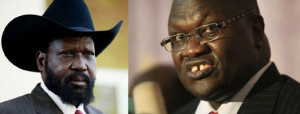 Instead, I shall suffice to bemoan this prescient/foreboding lament I sounded six years ago – in “Politics of Corruption in Kenya,” December 31, 2007 – when Kenya was on the precipice on a similar tribal/ethnic conflict:
Instead, I shall suffice to bemoan this prescient/foreboding lament I sounded six years ago – in “Politics of Corruption in Kenya,” December 31, 2007 – when Kenya was on the precipice on a similar tribal/ethnic conflict:
This sets up the all-too-familiar prospect of Africans resorting to tribal warfare to settle their political disputes… And those of us who are still hoping against hope for a political awakening in Africa cannot help but look on in despair as Kenya … descends back into the heart of darkness – where bloodlust gives rise to Idi Amins and Rwandan genocides.
_________________
That was two years ago, folks. And I’ve written several commentaries bemoaning the same since then, including “South Sudan Continues Descent into the Heart of Darkness,” April 25, 2014, and “’Another African Famine?! Nobody Cares!’ Then Call Me Nobody,” May 2, 2014. Significantly, I ended the latter with this abiding plea:
I am truly humbled by the thousands of foreign aid workers (mostly White Americans) who, despite all of the challenges and frustrations, continue to march to the front lines to help combat everything from chronic poverty to the vicious cycle of tribal warfare.
Hence, I can never tire of doing what little I can to support them and keep the humanitarian work they do in public consciousness. And, in doing so, I hope you don’t mind my taking a page from my Mummy’s playbook by trying to guilt you into donating (as I do) to their organizations, like UNICEF, USAID, Doctors Without Borders, UN World Food Programme, and CARE.
Therefore, it truly pains me that South Sudan continues to vindicate my worst fears – as this excerpt from a BBC Documentary “South Sudan’s Shattered Dream,” October 28, 2015, attests.
__________________
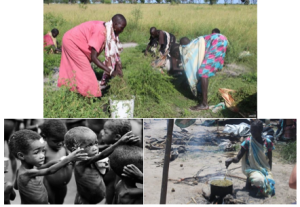 Almost four million people are facing severe food shortages, with thousands at risk of starvation, in South Sudan, in what has been described as one of the worst humanitarian crises.
Almost four million people are facing severe food shortages, with thousands at risk of starvation, in South Sudan, in what has been described as one of the worst humanitarian crises.
According to a report published in October 2015, if immediate action is not taken, the country could face famine in a matter of weeks. Aid agencies are pleading with both government and opposition forces to respect the current ceasefire and give unrestricted access to the areas most in need. …
It’s evening time, and Regina is busily preparing dinner for her family. I look into the pot to see what it is she is cooking and am astounded and shocked to find she is just using grass and leaves to feed her six children. It’s all she has.
__________________
Not to mention that an international commission of inquiry into alleged war crimes found that both government and rebel forces are perpetrating systematic torture, mutilations, rape, and forced cannibalism against the country’s hapless, starving civilians.
The media are making much ado about the exodus of thousands of Syrians fleeing sectarian conflict. But they would have cause to make much more ado about the exodus of millions of South Sudanese fleeing ethnic conflict … if only chronic starvation did not prevent the South Sudanese from walking like the Syrians.
In truth, all I can say at this point is: God help the godforsaken people of South Sudan.
*********
That reprise shared, I will end with this abiding lament.
I just hope the damning irony is not lost on any proud African that, 50 years after decolonization, hundreds of Africans (men, women, and children) are risking their lives, practically every day, to subjugate themselves to the paternal mercies of their former colonial masters in Europe.
(“African Migrants Turning Mediterranean Sea into Vast Cemetery,” The iPINIONS Journal, February 12, 2015)
Sure enough, apropos of African migrants turning the Mediterranean Sea into a vast cemetery:
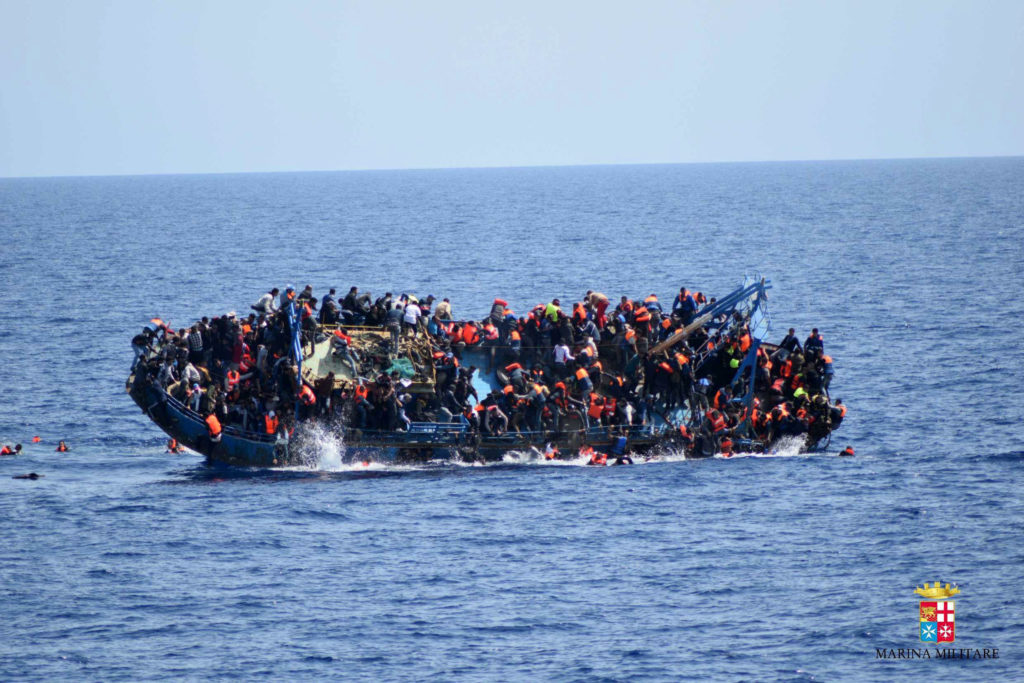
More than 50 migrants drowned in the Mediterranean on Sunday
The latest shipwreck is the most deadly in the Mediterranean since February 2 when 90 people drowned off the coast of Libya.
(France24, June 3, 2018)
It would not surprise me if some of the millions fleeing starvation and strife in South Sudan were among those who ended up in this watery grave.
Related commentaries:
South Sudan…
Ebola redux…
Live aid/Groundhog-day famine…
Lampedusa tragedy…
Mediterranean Sea…
